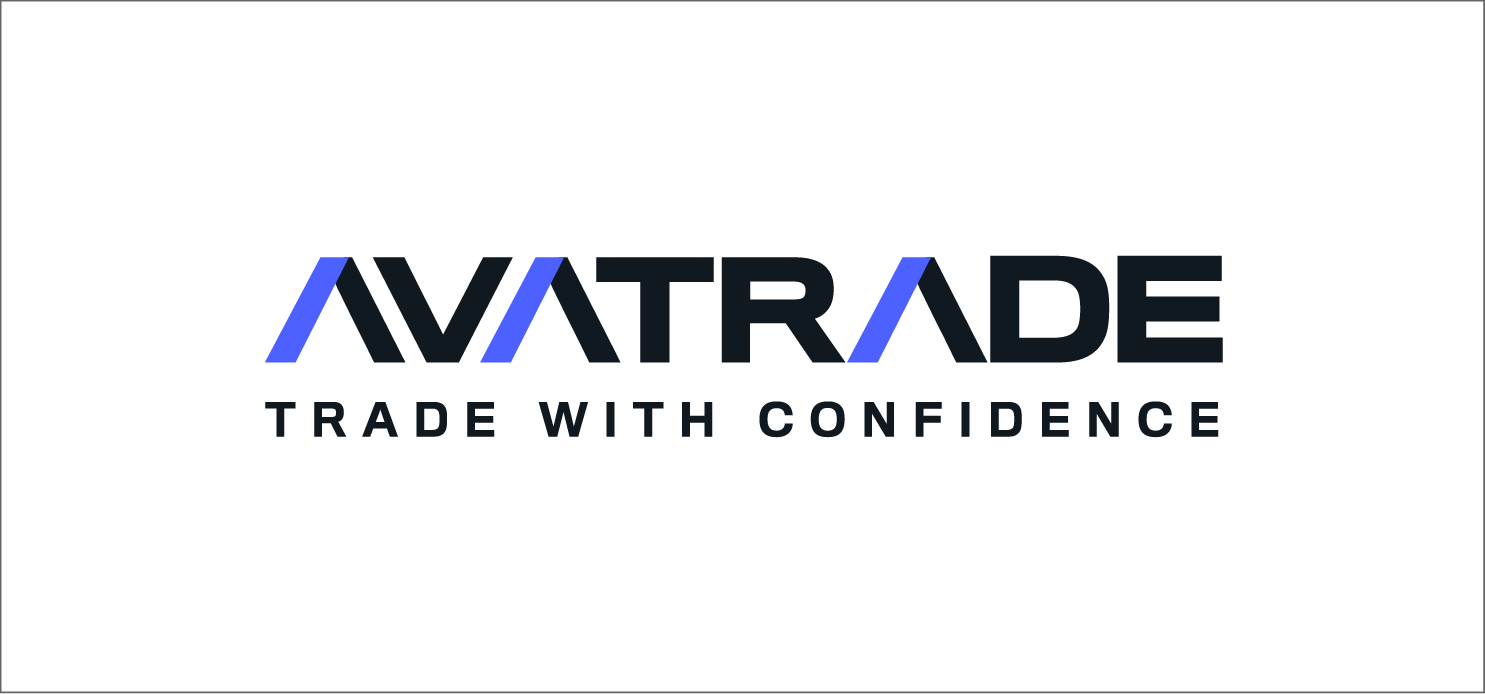Stock Trading For Beginners (2026 Guide)
All products and services featured are independently selected by WikiJob. When you register or purchase through links on this page, we may earn a commission.
- A list of the Top Stock Trading Brokers for January 2026
- Comparison Chart of the Best Stock Trading Brokers for January 2026
- Description of the Best Stock Trading Brokers for January 2026
- What Is Stock Trading?
- Glossary of Key Trading Terms in Stock Trading
- What Is the Difference Between Investing in Stocks and Funds
empty
empty
- How Does Stock Trading Work?
- Are There Different Ways to Invest In Stocks?
empty
empty
empty
empty
- Benefits and Challenges of Stock Trading
- How to Become a Stock Trader in 2026
- Considerations for Choosing a Trading Platform
- Where to Learn How to Stock Trade
- How to Invest in the Stock Market: 9 Tips for Beginners
- Frequently Asked Questions
- Final Thoughts
A list of the Top Stock Trading Brokers for January 2026
Comparison Chart of the Best Stock Trading Brokers for January 2026
Regulation ASIC, FCA, CySEC, MAS | Assets CFDs on Stocks, Forex, Cryptocurrencies, Indices, Commodities | Platforms Plus500's proprietary platform | ||
Regulation ASIC, CySEC, FCA | Assets Stocks, Cryptocurrencies, ETFs, Forex, Commodities, Indices (CFDs) | Platforms eToro's proprietary platform | ||
Regulation Central Bank of Ireland, ASIC, FSA and FFAJ, FSCA, etc. | Assets Forex, CFDs on stocks, commodities, indices, cryptocurrencies, bonds, and ETFs | Platforms AvaTradeGo, MetaTrader 4, MetaTrader 5 and WebTrader | ||
Regulation ASIC, FCA, CFTC, NFA, MAS | Assets Stocks, Forex, Cryptocurrencies, Indices, Commodities, Options (CFDs) | Platforms IG Trading Platform, MetaTrader 4 | ||
Regulation Varies | Assets Stocks, Indices, Commodities, Cryptos, more | Platforms Varies |
eToro: 61% of retail investor accounts lose money when trading CFDs with eToro. You should consider whether you understand how CFDs work, and whether you can afford to take the high risk of losing your money.
IG: Spread bets and CFDs are complex instruments and come with a high risk of losing money rapidly due to leverage. 68% of retail investor accounts lose money when trading spread bets and CFDs with this provider. You should consider whether you understand how spread bets and CFDs work, and whether you can afford to take the high risk of losing your money.
Note: The information in this table is subject to change and may not be complete. It is important to research and compare brokers thoroughly before opening an account.
Description of the Best Stock Trading Brokers for January 2026
1. Plus500
Pros
- No buy/sell commissions and tight spreads
- Leverage of up to 1:30
- FREE unlimited Demo
- 2,800+ trading instruments
- Real-time quotes and advanced analytical tools
- Fast and reliable order execution
Cons
- No API integrations
- No social copy trading
Plus500 is a popular platform known for CFD (Contract for Difference) trading, including stock CFDs.
Plus500 primarily offers CFDs, which are complex instruments that come with a high risk of losing money rapidly due to leverage. CFDs allow traders to speculate on price movements without owning the underlying asset, but they require a good understanding of the markets and risks.
The Plus500 platform is generally considered user-friendly, which can be beneficial for beginners. It offers a clean interface and easy navigation.
For beginners, the availability of a demo account is a significant advantage. Plus500 provides a demo account where beginners can practice trading without risking real money.
Plus500 may offer some educational materials, but it's typically not as extensive as what specialized educational platforms provide. Beginners might need to seek additional educational resources elsewhere.
The platform offers risk management tools which are essential for beginners to learn and use effectively.
Plus500 is a regulated broker, which adds a layer of security for traders.
Plus500 is not suitable for Beginners except for the Demo Account and the educational tools.
While Plus500 might be user-friendly and suitable for some beginners, especially those interested in CFD trading, it's crucial for beginners to understand the high risks involved with CFDs and to supplement their learning with comprehensive educational resources.
2. eToro
Pros
- Regulated by FCA, ASIC
- No withdrawal fee for US clients
- 0% commission on stocks
- Social and copy trading
Cons
- Not available in every US State
- More expensive than most of its competitors
- No MetaTrader platforms"
Founded in 2007, eToro is considered a very low-risk broker as it is highly regulated by the Financial Conduct Authority (FCA) in the UK and many other regulatory bodies elsewhere.
Opening an account is free and you can access a $100,000 demo account to test the system.
It offers 47 currency pairs for trading. Spreads for forex trading have recently been significantly reduced and range from a very competitive 1 to 3 pips for major currency pairs.
Typical spreads for EURUSD and USDJPY trades, for example, are just 1 pip.
You can see the full list of spreads on the eToro website.
You’ll need to deposit a minimum of $200 for Copy Trading, eToro's standout feature which allows you to follow other traders and copy their trades.
This forex broker is great for beginners due to its user-friendly interface and app and 24-hour customer support. It allows you to trade currencies, stocks and cryptocurrencies in one portfolio and the Copy Trading system is a great way to learn.
The company also offers trading courses and features a Learning Lab which houses a variety of tools to support clients with their trading experience.
To find out more, read our eToro review.
61% of retail investor accounts lose money when trading CFDs with eToro. You should consider whether you understand how CFDs work, and whether you can afford to take the high risk of losing your money.
3. AvaTrade
Pros
- Highly regulated
- Free deposit and withdrawal
- No commission
- Low minimum deposit
- Social and copy trading
Cons
- Not available for US clients
- Inactivity fees
AvaTrade is a well-known online broker that offers a range of trading options, including stock trading. It can be a suitable choice for beginners in stock trading.
AvaTrade is regulated in multiple jurisdictions, including the European Union, Australia, Japan, and South Africa. This regulatory oversight provides a level of security and peace of mind for new traders concerned about the safety of their investments.
While it offers a range of trading instruments, AvaTrade is particularly strong in CFDs (Contracts for Difference). For stock trading, this means beginners can trade stocks without owning the underlying asset, which can be simpler and requires less capital upfront.
AvaTrade is known for its intuitive and user-friendly trading platforms. This is especially beneficial for beginners who may find more complex platforms overwhelming. The platforms include AvaTradeGo, their mobile app, and the popular MetaTrader 4 and 5 platforms, which are known for their user-friendly interfaces.
AvaTrade provides an extensive range of educational materials suitable for beginners. This includes trading guides, webinars, and tutorial videos that cover various aspects of trading, including stock trading fundamentals, strategies, market analysis, and risk management.
Beginners can benefit from the demo account offered by AvaTrade. This feature allows new traders to practice trading with virtual money, helping them understand the market dynamics and test strategies without risking real capital.
4. IG
Pros
- Highly regulated
- MetaTrader 4 (MT4)
- Over 10,000 instruments
- Available in the UK and US
- 24/7 customer support
Cons
- High fees
- No deposit compensation scheme for US accounts
- No copy trading
- Inactivity fees
IG is a great share trading platform for beginners thanks to its user-friendly interface and extensive educational resources.
Pros of IG include a wide range of trading instruments and markets, as well as the ability to access multiple account types and trading platforms. The platform also offers a demo account for beginners to practise trading strategies before investing real money.
However, IG isn’t the cheapest share trading platform, with relatively high trading fees and a minimum deposit requirement of £250 when paying by credit/debit card or PayPal.
In terms of additional fees, IG charges a commission fee for share trading, starting from £8 per trade. There’s also a custody fee of 0.25% per year for holdings of £250 or more.
Overall, IG is a solid choice for beginners looking for a user-friendly platform with extensive educational resources, but investors should be aware of its fees and minimum deposit requirements.
5. Freedom24
Pros
- Well regulated in Europe and America
- Plenty of stocks to choose from
- Lots of education available
Cons
- No option to buy fractional shares
- Only available to EU residents
- Withdrawal fee applies to all account types
Freedom24 is a subsidiary of Freedom Finance, a well-regulated financial services group with offices in Cyprus, Germany, Spain, and Greece.
With a simple and fast account opening process and 30 days of commission-free trading as well as a demo account, Freedom24 is a great starting place for beginner traders.
Aside from the usual tools like technical indicators, tick charts, and price charts, Freedom24 offers comprehensive support as well as a blog that has lots of useful information such as forecasts and recommendations.
Customers can seek support from professional trades on the platform, and there are two full-length courses aimed at both beginner traders and those with a bit more experience.
The Fundamentals of Investment course is aimed at beginners, while the Options Trading course is predominantly for experienced traders. Both courses feature short individual lessons that are completely free and can be taken at any time – you don’t even need an account.
There are several different account options available, and most offer competitive commission rates, no minimum deposit, and no inactivity fee – but there is a €7 charge for each withdrawal that you make.
What Is Stock Trading?
Stock trading is the act of sharing, swapping, buying or selling part of a company’s ownership.
The stock, also known as the share, is a fraction of an ownership that a corporation is willing to put on the stock market.
Those who buy or have ownership of these shares become known as the shareholders. Holding shares in a corporation can lead to considerable profits, as the shareholder is entitled to a percentage of the corporation’s earnings and assets.
Stockbrokers – those who operate in the trading of a company’s shares – are often the first point of contact when dealing with stocks. They work as advisers, representatives of a respective corporation’s stocks or as stock managers.
Stock trading in the days before the rise of the mobile phone and personalized computers took place in designated stock brokerages. These still exist today – however, now it is possible to trade stocks over multiple electronic trading platforms.
If you are interested in how stock trading works and how you can become involved in it, then this article is an essential read. Here, we will provide well-researched advice on the intricate details of stock trading.
Glossary of Key Trading Terms in Stock Trading
- Stock – A stock or a share represents a small part of ownership in a publicly traded company.
- Broker – A broker is a person or a firm that helps you buy and sell stocks.
- Exchange – An exchange is a marketplace where buyers and sellers come together to trade stocks.
- Volume – Volume refers to the total number of shares of a particular stock that are traded in a given period of time.
- Market capitalization – Market capitalization, or market cap, refers to the total value of a company's outstanding shares of stock.
- Bid price – The bid price is the highest price a buyer is willing to pay for a stock.
- Ask price – The ask price is the lowest price a seller is willing to accept for a stock.
- Spread – The spread is the difference between the bid price and the ask price.
- Bull market – A bull market is a market in which stock prices are rising, and investor sentiment is generally positive.
- Bear market – A bear market is a market in which stock prices are falling, and investor sentiment is generally negative.
- Dividend – A dividend is a portion of a company's profits that is paid out to shareholders.
- P/E ratio – The price-to-earnings ratio, or P/E ratio, is a valuation ratio that compares a company's current stock price to its earnings per share.
- IPO – An initial public offering, or IPO, is the first time a company's stock is offered for sale to the public.
- CFD (Contract for Difference) – A financial derivative that allows traders to speculate on the rising or falling prices of underlying assets without owning the assets themselves.
- ETF (Exchange-Traded Fund) – Investment funds that trade on stock exchanges and allow investors to gain exposure to a diverse range of assets with one investment.
- Market making – Buying and selling financial instruments to provide liquidity and facilitate trading.
- Robot – A trading robot is an automated software program designed to execute trades in financial markets based on pre-programmed algorithms and technical analysis.
What Is the Difference Between Investing in Stocks and Funds
Investing in stocks and funds are two different approaches to investing in financial markets.
Stocks
Stocks refer to ownership shares in individual companies, whereas funds refer to a collection of assets (for example, stocks, bonds, commodities, real estate) managed by an investment professional.
When you invest in stocks, you are buying ownership in a particular company and are subject to the performance of that company.
The value of the stock will fluctuate based on the company's financial performance, industry trends, and overall market conditions. Investing in individual stocks requires a significant amount of research and analysis to determine which companies are likely to perform well.
Funds
When you invest in a fund, you are buying a diversified portfolio of assets managed by a professional.
This can help to spread the risk of your investment and potentially generate a more consistent return over time.
Funds can be actively managed, where the fund manager will make decisions about which assets to buy and sell, or passively managed, where the fund is designed to track the performance of a specific market index.
Overall, investing in stocks requires a higher level of knowledge and research, whereas investing in funds provides a more diversified and potentially less risky approach to investing.
How Does Stock Trading Work?
Today, as long as an individual has access to an electronic trading platform, they can get involved with stock trading. Long gone are the days of exclusivity – now, as long as you have access to consistent Wi-Fi and a decent smartphone, you can become a stock trader.
How stock trading works has changed dramatically over recent years. There is no longer any need to be within a physical trading marketplace and trade can be conducted through online stockbrokers.
The stockbrokers still use the same stock exchange markets in order to value the stocks they are trading. Companies wanting to trade their shares use these exchange markets to list the stocks available to stockbrokers.
Once the calculations to gauge the value of the stocks on offer have been completed, the stockbrokers are invited to purchase and then sell the shares on.
This process is one of supply and demand. The more a certain listed share is bought and then sold on, the greater its price will be.
As well as the cycles of trade that surround certain stocks, their prices can be determined by other external factors. For instance, a corporation’s stock may have featured heavily in the news, driving investors and stockbrokers toward it.
A good example of this is GameStop’s stocks becoming highly popular after a series of news stories. The price of the stock rocketed during the end of January 2021 and subsequently plummeted as shareholders were quick to offload the stocks they held.
To start the process of stock trading, there are a few stocks to keep in mind for initial investment.
The best stocks to start trading are those that are secure and certified. If you are new to stock trading, it is best to keep to proven stocks with strong sustainability.
Stocks such as Facebook, Microsoft, Netflix and so on are good stocks to start with. To make money on these stocks, you would have to invest large amounts of money, but the major advantage of these stocks is that they are very low risk.
Become comfortable with the idea of trading, and learn the logistical patterns before making more speculative investments.
Asia Forex Mentor Trading Program
Are There Different Ways to Invest In Stocks?
To invest in stocks, you have to be willing to put investment forward. How much you are willing to invest will depend upon your knowledge of the stock market and your income.
The stock market is filled with a variety of potential investments that are not just limited to a share in a corporation’s ownership. Stockbrokers are able to invest in the bonds and debts of companies, the funds in which they are trading with other corporations and even the property that corporations are investing in.
With so many options, it is understandable that those new to stock trading will feel apprehensive about what stocks to approach. However, it is important to note that the stock market is only as complicated as you want to make it.
If you are considering investment into a selection of stocks, there are a few tips to keep in mind:
How Much Do I Have to Invest Across Each Stock?
Calculate your earnings and how much you are willing to lose. Such a tactic may seem pessimistic, but it is essential that you don’t risk investment too far outside of your means.
It is important to consider how many stocks you want to invest in. You may want to heavily invest in two or three stocks, or you may want to diversify the shares you have investments in.
This is known as your stock spread, and traders generally use such methods to calculate how much they can handle.
How Much Time Do I Have to Invest In the Stock Market?
Money is not the only currency in stock trading. The time spent on studying the patterns broadcasted over the stock exchange markets is as significant as the money itself.
You must be aware of how much time you can put toward stock trading. If it is more of a hobby, then you may only have a few hours a week to spend studying the stock market and making investments.
On the other hand, some stockbrokers work tirelessly and spend their full working days watching the shift in stock values. Your experience with the stock market will determine how you want to approach trading. It is best to be patient at first.
What Do I Want From Stocks?
Some stocks and shares are worth more than others. Equally, some stocks take longer than others to develop in value.
What type of approach you want to take will determine the stocks you want to invest in. If you are looking for trading to be driven quickly, you may favor day trading. Stocks in this market are only exchanged and priced over the course of a day, meaning you have a fixed time to invest in the stocks available.
If you are in even more of a rush, you can try out scalping. This type of trading is done over the course of minutes, even seconds. The thrill of scalping is something always discussed, but it can be risky due to its exceptionally short time frame.
In contrast, you may be more methodical in your approach to stocks, and you may want to spend a considerable time watching the development of your stock spread. If this is the case, you will favor more position or swing exchange markets.

Who Are You Trading With?
As you enter the stock market, you can do so as an individual or part of a company. If you are stock trading by yourself, the workload will of course be more than if you were part of a team or had advisory members around you.
Being an individual stock trader requires some serious research into the performance of multiple stocks, the forecasted returns of all investments and some serious caution. If you are not sure when to invest further or sell part of your spread of stocks, the risks could potentially be financially damaging.
However, trading as an individual comes with distinct rewards. You have complete control over your spread of stocks, and, likewise, you receive all of the commissions from the stocks. As an individual, you have to put in much more work, but the profit margins could be much higher.
If you are considering trading as an individual, you can seek advice from proven stockbrokers who will give you tips and direction. This, of course, comes at a price.
In addition, you can also seek the use of a robo-advisor that will help monitor your investments. A robo-advisor is an automated service platform that tracks the algorithms of the various stocks you may want to invest in.
With the help of a robo-advisor, you will not have to gather all of your own information, as they use digitized data to forecast where the best investments can be made. The automated devices provided by trading networks do cost money, and they usually work on the premise of your investment.
For instance, if you want to invest around $10,000, a robo-advisor will calculate the best investments with this amount of money. From this, the platform that you use will take a percentage from the profits you gain.
You can also trade as part of your employment. Many corporations allow their employees to invest using their retirement and pension funds. They may also provide advice on what stock spreads could be successful.
Reverting to this type of trade will help potential traders find sufficient funds to start on the stock market. Equally, you can trade on behalf of a company’s stock, giving you the opportunity to financially invest in the corporation you are working for.
There may be less freedom in such a choice, but you will be part of a team that will be willing to give advice to help you succeed.
Benefits and Challenges of Stock Trading
The beauty of stock trading is that you do not need vast amounts of money to invest in the first place. Today, a trader can start with around $500 and make substantial profits.
Stocks are usually bought in rounded amounts, and so you must be willing to put forward that investment to get going. For instance, you may be advertised 100 shares in a company that sells their shares at five dollars a share.
There are multiple benefits to this, as it allows shareholders to neatly keep track of how many shares they have investments in.
Equally, having rounded investments help deal with inflation projections. An increase in the rate of inflation will typically increase a stock’s worth. If there is a two percent increase in inflation each year, for example, then the value of a stock will be worth two percent more.
There are great benefits to monitoring inflation. If there’s a projected increase of five percent of inflation annually, this means your stocks will increase in their value. Good stock traders capitalize on these incremental changes.
Asia Forex Mentor – Best Trading Course
If you are an experienced trader and are consistent, this is more beneficial than putting your money in a savings account. If there is an increase in inflation, you can sell the stocks quickly, reaping the rewards that you would not receive for putting your money in a fixed account.
However, there are challenges surrounding inflation. Either an increase or decrease in inflation will determine the value of all stocks.
You may want to sell a stock at its new projected value, but it is worth keeping in mind that there are changes in all of the stock values. You may be paying more for a stock than you would have done a few months prior.
Stock trading has also become more accessible. It is easier than ever to buy or sell stocks of a corporation, and you can do it anywhere.
With such ease, it allows any stock trader to monitor their investments quickly, but the challenge of this is that speculations on stock values can change quickly.
There are also now many ways of trading stocks. As mentioned above, stock traders can choose from scalping, day-trading or position and swing trading, depending upon their time constraints.
The broad choice means that the stock market is inviting to investors of all levels of experience.
However, each type of trading has a different strategy.
Developing strategies around time, money, and your knowledge prior to entering stock trading is a major challenge.
How to Become a Stock Trader in 2026
All that you need today to get involved in stock trading is access to an online trading platform.
A trading platform, also referred to as a broker, as they are the financial intermediary, can be downloaded to your computer or to your phone as an Apple or Android app.
There are many different trading platforms that cater to different needs and levels of experience. As this is a guide to trading in 2026, it is worth outlining the platforms that are generally good for beginners and hobbyists:
- eToro
- TD Ameritrade
- Ally Invest
Each of these platforms is easy to use and accessible through your computer or phone.
How much you need to invest initially depends on each platform and how much stocks you need to buy as an initial investment. Typically, $500 to $1,000 is a solid starting point.
All of these trading platforms allow users to set up demo platforms. These give stock traders the opportunity to examine how their investments will play without losing any money in the process.
Building a good demo account portfolio serves stock traders well, and it is often advised to use demo accounts to gain experience.
Using demo accounts will also help you devise strategies that work for your investment goals. Setting out strategies is key to risk management and achieving your projections.
If you are new to stock trading, it is essential that you take the time to familiarize yourself with the terminology of stock trading and learn more about the technical analysis tools.
Considerations for Choosing a Trading Platform
It is best to stick to well-known and regulated platforms such as ones listed above. However, if you want to explore the market and see what works for your trading preferences, there are a few elements to keep in mind:
- Consider using a platform that is tier-1 regulated. Brokers with tier-1 regulation have a global reach and often have internationally recognized status.
- Make sure that the platforms have fast execution speed and good customer support. These factors will ensure stock traders can interact with their respective shares quickly.
- Be aware of the technical tools you will have available from using a certain platform. Many platforms have margins and spreads to aid, and some of more comprehensive platforms have good educational resources at hand.
- Consider what you are asked to initially invest and the fees you will have to pay back. Try to find platforms that have low fees and commissions that favor your investment goals.
Where to Learn How to Stock Trade
There are numerous resources online that teach the basics of stock trading. We have developed our own guide to give you the best start in the stock trading market.
However, if you are looking for a wider range of sources to consult, there are other websites that give equally well-researched advice. Investopedia and Nerdwallet are also viable starting points.
If you are completely new to stock trading, it may also be worth taking a stock trading course. There are many available, and each one of them helps future stock traders gain an understanding of the best strategies and realistic investment goals.
You can also access video material on stock trading through YouTube. Today, there are reputable stockbrokers running YouTube channels that offer good tips and hints.
Stock trading requires a lot of screen time, so you may want a break from this. A good place to start is with Trading: Technical Analysis Masterclass: Master the financial markets by Rolf Schlotmann.
How to Invest in the Stock Market: 9 Tips for Beginners
Step 1. Set Investment Goals
Before you start investing in the stock market, it's important to define your investment goals. Ask yourself what you want to achieve with your investments, whether it's long-term wealth building or short-term gains.
Step 2. Understand Your Risk Tolerance
Your risk tolerance is your ability to handle financial losses. Some people are comfortable with taking higher risks, while others prefer more conservative investments. Understanding your risk tolerance can help you determine the type of stocks or funds that are suitable for your investment portfolio.
Step 3. Create a Diversified Portfolio
Diversification is key when it comes to investing in the stock market. This means spreading your investments across different sectors and asset classes to reduce the impact of any one investment on your overall portfolio. This can help mitigate risk and provide better long-term returns.
Step 4. Choose a Broker or Investment Platform
There are many brokers and investment platforms available, each with its own fees, features, and benefits. Do your research and choose a broker or platform that aligns with your investment goals and strategy.
Step 5. Research Stocks or Funds
Do your due diligence before investing in any stock or fund. Look at the company's financials, management team, and industry trends to gain a better understanding of its potential for growth. For funds, review the portfolio and performance history to determine if it aligns with your investment goals.
Step 6. Start With Small Investments
When starting out, it's best to start with small investments until you feel more comfortable with the process. This can help you learn how the stock market works and help you make better investment decisions in the long run.
Step 7. Monitor Your Investments
Once you've made your investments, it's important to monitor them regularly. Keep an eye on your portfolio's performance and make adjustments as needed. Stay up to date on market trends and news that could impact your investments.
Step 8. Don’t Let Emotions Guide Your Decisions
It's important to keep a level head when investing in the stock market. Don't let fear, greed, or other emotions guide your investment decisions. Stick to your investment strategy and stay disciplined, even during market downturns or times of uncertainty.
Step 9. Stay Educated
The stock market is constantly changing, so it's important to stay educated on new trends, investment strategies, and market conditions. Read financial news and analysis, attend investment seminars, and stay connected with other investors to gain new insights and perspectives.
Stock trading is the buying and selling of shares or stocks of publicly traded companies on the stock exchange.
The goal is to make a profit by buying stocks at a lower price and selling them at a higher price.
The best stock trading platform for beginners should be user-friendly and offer educational resources, research tools and low fees.
Some popular platforms for beginners include Robinhood, E*TRADE, TD Ameritrade and Fidelity.
To learn stock market trading for beginners, it's important to start with the basics and educate yourself on topics such as market analysis, stock valuation and risk management.
Online courses, books and mentorship programs can all be helpful resources for beginner traders.
For beginners in stock trading, it's recommended to start with low-risk products such as exchange-traded funds (ETFs) and mutual funds.
These investment products offer diversification and can provide exposure to a broad range of stocks.
Some common terms and concepts that beginner traders should know include stock price, volume, market capitalization, dividend, earnings per share (EPS) and price-to-earnings (P/E) ratio.
Long-term investing and buy-and-hold strategies are generally recommended for beginner traders as they require less active trading and offer more stable returns.
Day trading and options trading are more advanced strategies and can involve higher risks.
To get started with stock trading, you need to educate yourself on the basics of the stock market, trading strategies and market analysis.
Then, choose a reliable broker, open an account and deposit funds. Next, select the stocks you want to trade and execute your trades.
Opening a trading account for stock trading involves choosing a broker, filling out the account application, providing identification and financial information, and funding the account.
You can open an account online or in-person at a broker's office.
Fees associated with trading stocks include commissions, spreads and other charges such as deposit and withdrawal fees.
You can minimize fees by comparing brokers, negotiating commission rates and avoiding unnecessary trades.
Risk management is crucial when trading stocks. To manage risk, you can use stop-loss orders, diversify your portfolio, use proper position sizing and avoid emotional trading decisions.
Common mistakes to avoid when starting out with stock trading include not having a trading plan, overtrading, not managing risk properly and letting emotions drive trading decisions.
Some trading platforms with user-friendly interfaces include Robinhood, TD Ameritrade's Thinkorswim, E*TRADE and Interactive Brokers.
These platforms offer easy-to-use tools and resources for beginners to start trading stocks.
Final Thoughts
Stock trading in 2026 is as vibrant as it ever has been. Today more people are interacting with the stock market either as serious professionals or curious punters.
Wherever you may fall between these categories will depend upon how much time, money and knowledge you have. If you are at the beginning of your stock trading journey, then you have a potentially profitable time ahead.
Follow the advice given from the experts, and pay attention to the various different tools and markets you can use to maximize your investments. There has never been a better time to trade than 2026.
WikiJob does not provide tax, investment, or financial services and advice. The information is being presented without consideration of the investment objectives, risk tolerance, or financial circumstances of any specific investor and might not be suitable for all investors. Past performance is not indicative of future results. Investing involves risk including the possible loss of principal.











